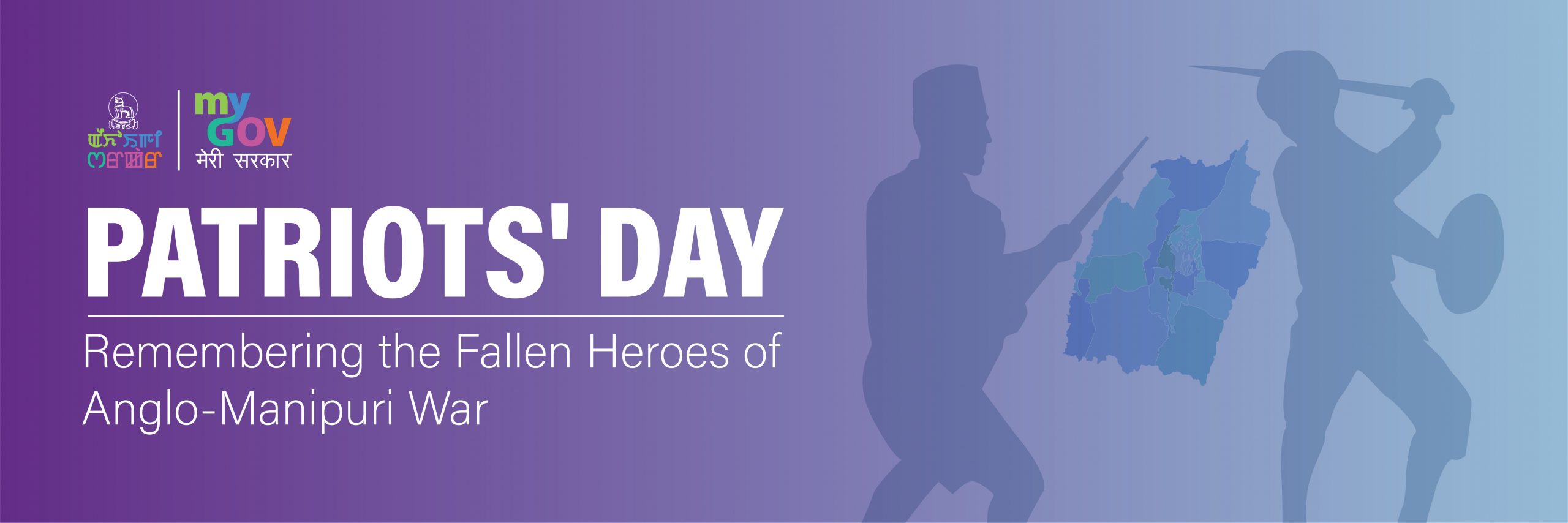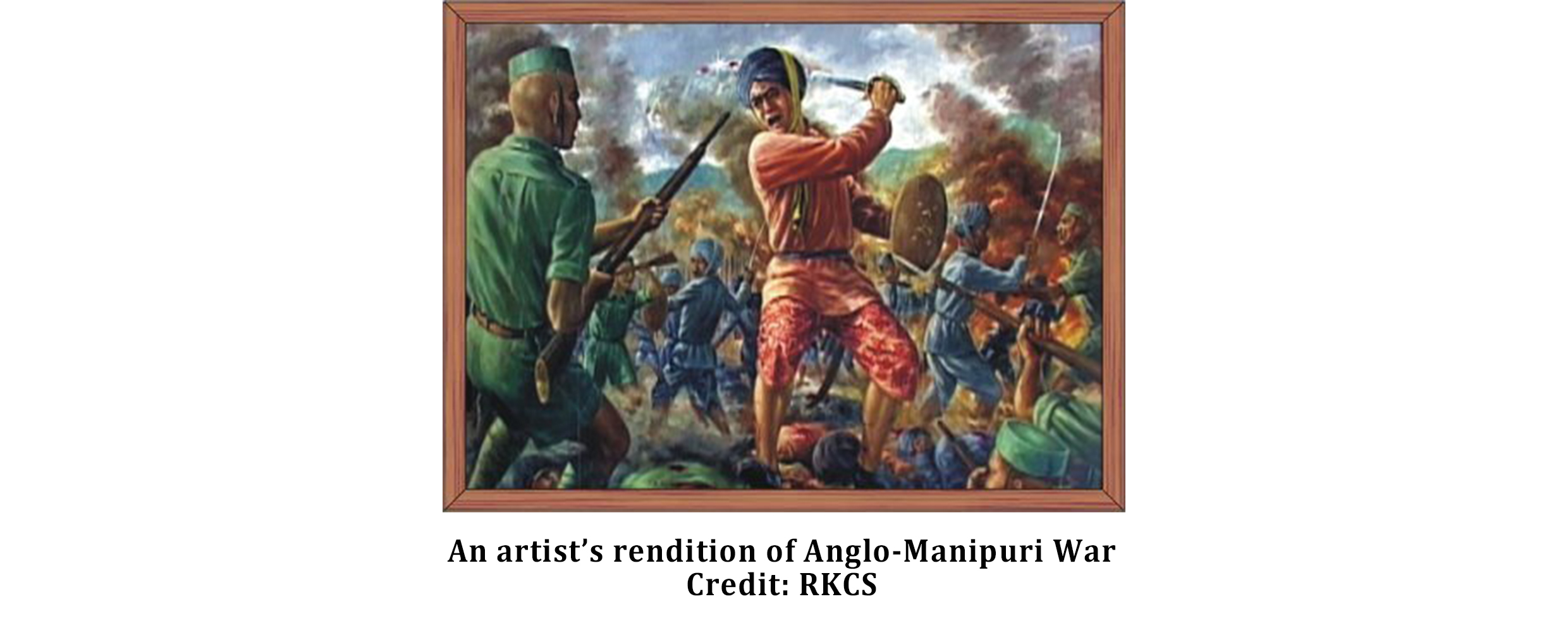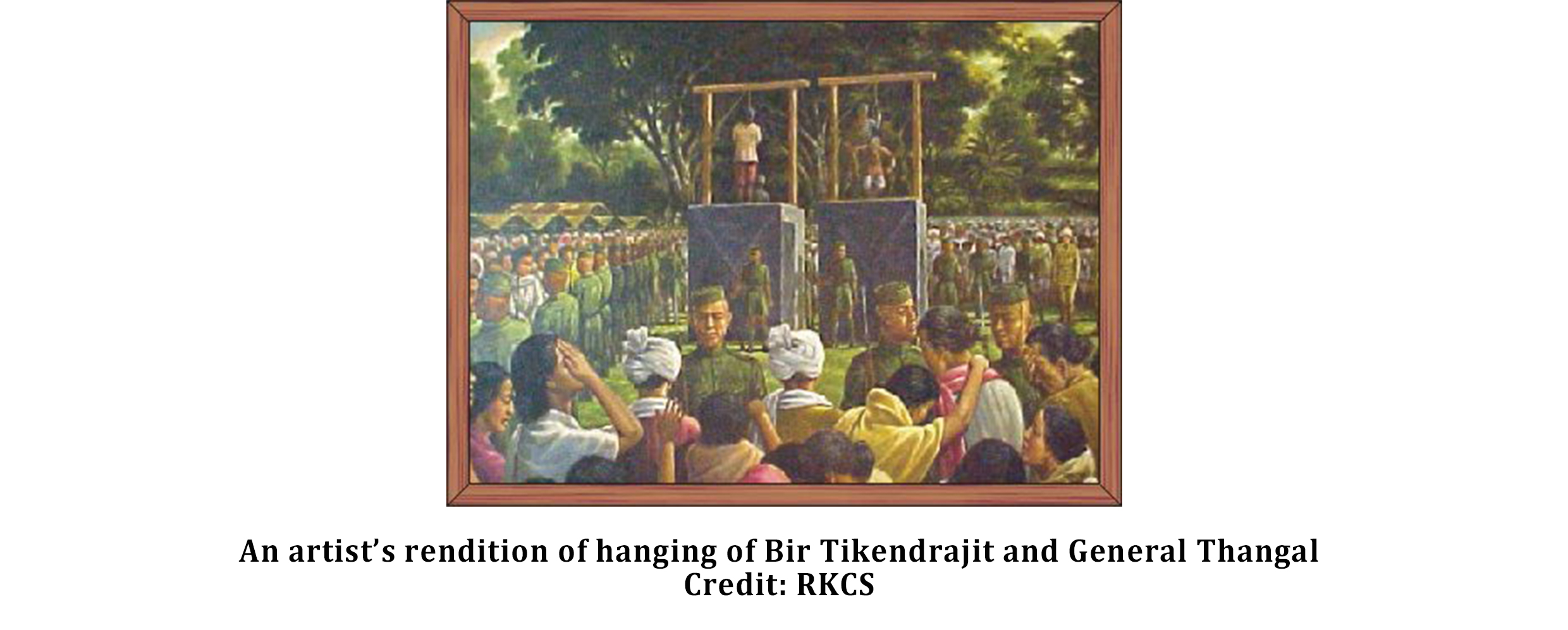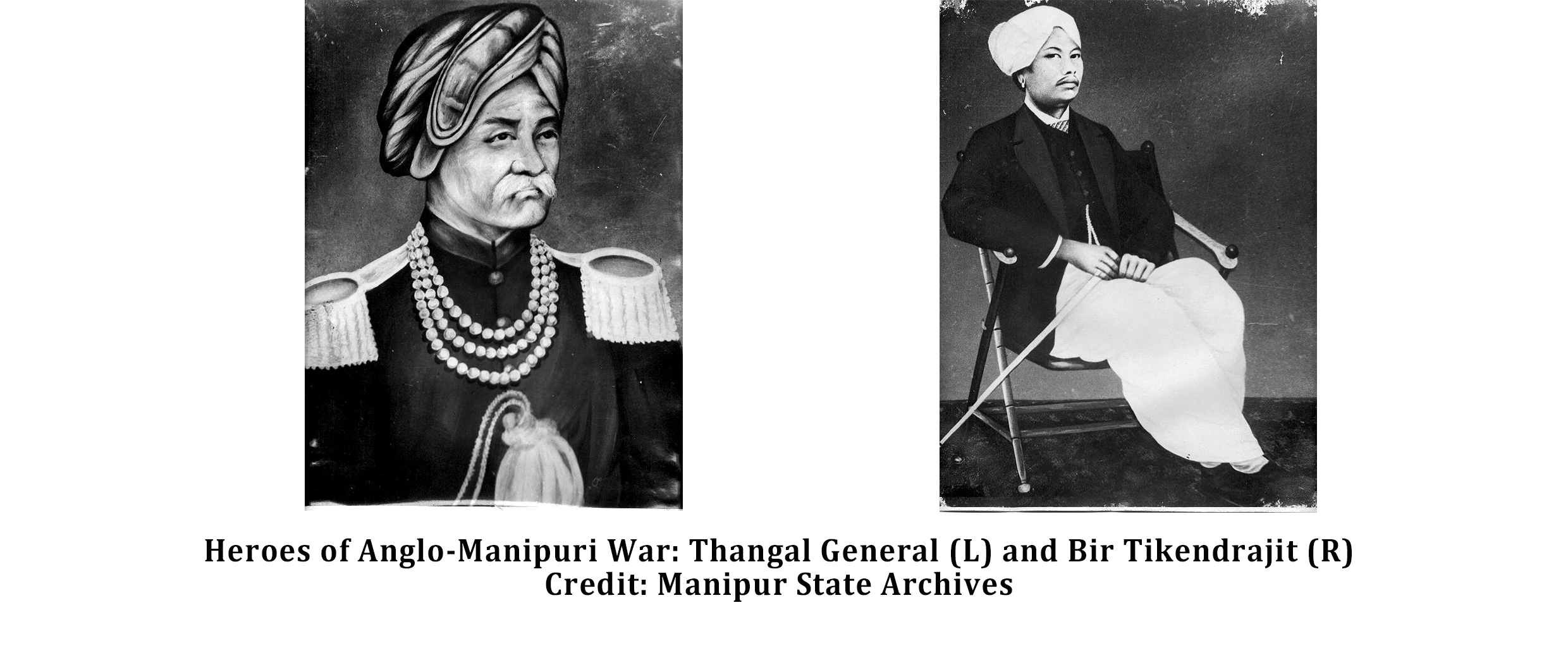PATRIOTS’ DAY: Remembering the Fallen Heroes of Anglo-Manipuri War

The Anglo- Manipuri War of 1891 is one of the most important events in the history of Manipur. In the war against the British colonial expansion, many martyrs of the tiny kingdom of Manipur laid down their lives to save the dignity, honour and sovereignty of their motherland despite the inevitable defeat against the mighty empire of the British. After the graceful defeat at the Battle of Khongjom where the Manipuri armies fought gallantly under Major Paona Brajabashi, Manipur lost its sovereignty to the British. And, on the fateful day of 13th August 1891, martyrs of Manipur- Yubraj Tikendrajit, Thangal General were hanged in front of the public at Pheidabung, presently known as Bir Tikendrajit park. That was one of the most shocking incidents the people of Manipur witnessed in its history. Patriots’ Day is observed every year on August 13 with the highest kind of tribute and honour the Manipuris can pay to those martyrs in remembrance of their bravery and love of their motherland.
The course of Anglo Manipuri War
Manipur ended its dark history of Seven Years’ Devastation and regained its freedom from the Burmese forces with the help of the British in the year 1826. After the Anglo-Burmese war, Manipur was placed under the protection of British officials with payment of taxes in return, with Gambhir Singh being recognized as Raja of Manipur. The office of British Political Agent was established in Manipur in 1835 to promote friendly relations between Manipur and the British. This marked the beginning of British colonialism in Manipur. The frequent internal conflicts of palace intrigues and coups allowed the power of the Political Agent to rise and this British office turned out to be the de facto administrator of the state.

After the death of Maharaja Chandrakirti, his son Surchandra became the king with Kullachandra as the Yubraj( crown prince) and Tikendrajit as the Senapati. But the princes were divided into two parties animated by hostile feelings towards one another for the post of the king. Backed by Tikendrajit, Kullachandra revolted against the reigning Maharaja Surchandra on 12th September 1890. Surchandra fled to the residence of the Political Agent, Mr Grimwood and informed him that he had formally abdicated the throne in favour of his brother Kulachandra and decided to retire to Brindavan. On the same day when Surchandra left for Brindavan, Kullachandra became the king of Manipur with Tikendrajit as Yubraj, on 23rd September 1890. While Kulachandra was not formally recognised by the British crown as the king of Manipur, Surchandra complained to the then Viceroy, Lord Landsdown when he reached Calcutta that he had been dethroned by his stepbrothers mainly backed and engineered by Tikendrajit. This prompted the British to arrest Tikendrajit sensing his potential and signs indicative of shaking off the yoke of dependence on the British officials.
With the order of the Viceroy to arrest Tikendrajit, the Chief Commissioner of Assam, Mr Quinton arrived at Imphal on 22nd March 1890 with 400 Gorkha soldiers under Colonel Skene. Mr Quinton informed Kullachandra of the intention of the British government that Kullachandra would be recognised as the king of Manipur while Tikendrajit had to be exiled. Kullachandra was asked to hand over Tikendrajit to the British to which Kullachandra refused. This led the British force to enter the house of Tikendrajit without declaring war and attacked Kangla, the palace of Manipur on 24th March 1891. The unprecedented and unjust act of the British caused the death of a large number of innocent people, including women and children besides heavy casualties and bloodshed on both sides. To come to a peaceful concord between the two sides, Chief Commissioner Quinton, Political Agent Grimwood, Col. Skene, Cossin and Lt. Simpson went to the palace the next day, unarmed and without escorts. When the British officers returned and moved towards the gate, they were attacked by the agitated crowd. Pukhramba Kajao speared Grimwood as an act of impulse and Lt. Simpson was also badly injured. At the demand of the agitated crowd, General Thangal gave the order to the public executioner to kill the British officers and all the British officers were beheaded in front of the Kanglasa.

As soon as the news reached Calcutta on 31st March 1891, the Government of British India declared war against Manipur and sent very large columns of their Army from three directions, one from the north through Kohima under the command of their Major General H.Collett, who was also the overall Commander of the British Forces, advanced for operations in Manipur, another column advanced from the west from Silcher under the command of Colonel RHF Rennick and the third column came from the south from Tamu, Burma(Myanmar) under the command of Brigadier General T. Graham. The British column that advanced from Tamu met the stiffest resistance from the Manipuris at Khongjom while the column that advanced from the west did not have much resistance and broke through to finally take possession of ‘Kangla’ the palace of Manipur. On 27th April 1891, all the three British columns occupied Imphal, the capital of Manipur sounding the death knell of whatever sovereign power Manipur had enjoyed.
After the British troop occupied Manipur, the Government of British India constituted a court to try Kullachandra, Tikendrajit, Thangal and many others. Kullachandra, Tikendrajit and Thangal were sentenced to death but the death sentence of Kullachandra was commuted to transportation for life and forfeiture of property. Amidst the massive protest from the people, Tikendrajit and Thangal were hanged to death on 13th August 1891. Besides them, Pukhramba Kajao, Niranjan Subedar and Chirai Naga were also hanged in jail on 25th May, 8th June and 13th October of the same year respectively.

Patriots’ Day is observed every year on 13th August in remembrance of those brave sons of Manipur who chose death over surrendering the sovereignty of their motherland to the British and laid down their lives gracefully. The story of bravery and patriotism of those heroes still keeps on instilling the love of their motherland upon the hearts of generations of Manipuris.





